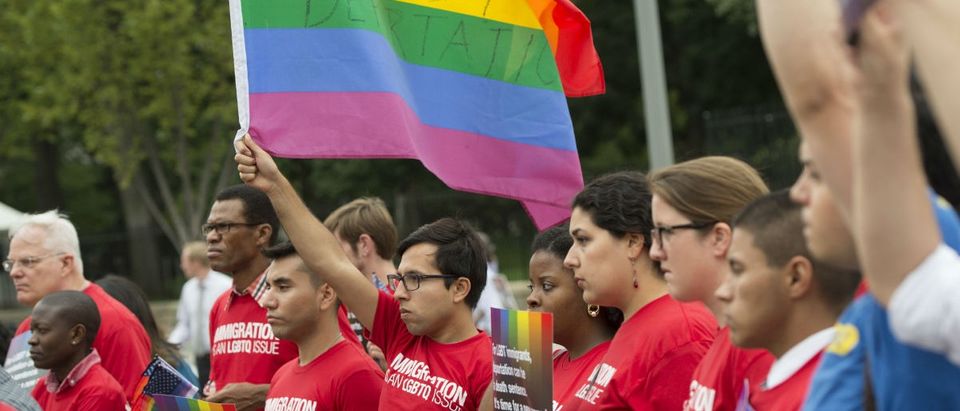Kristin Gunckel wants to introduce elementary school children to “queer theory” because it’s a “useful tool for re-imagining elementary science,” The College Fix reports.
Gunckel is a science education professor at the University of Arizona, and she discussed her ideas in a March 23 lecture hosted by her university’s LGBT studies department.
She has written about “queer theory” extensively in the past, specifically stating, “In elementary school, it means not hiding sexuality from children. At all levels, it means providing space within the curriculum for students to see themselves and their families. Queering science education means making the invisible visible.”
She insists that school kids aren’t sufficiently challenged by the mundane “heteronormative” approach that promotes “limited” ideas in science classrooms and that inserting a discussion on alternate sexuality is the right response.
Gunckel’s specific subject was headlined on the university’s webpage as “how queer theory can be a useful tool for re-imagining elementary science education and elementary science teacher preparation.”
Chris Sigurdson, a university spokesman, returned questions on behalf of the professor, who explained in an email to The College Fix that social scientists routinely use “queer theory” to assess accepted norms from a fresh perspective and that this was what Gunckel was proposing in her lecture as a means of rebooting science education.
A cursory examination of the lecture’s focus indicates just how radical a reboot Gunckel is proposing. One of the areas that she focuses on is entitled “inviting sexuality into the elementary science classroom,” which she had previously indicated in an academic paper as meaning including pictures of people with varying sexual orientations in order to stop “hiding” sexuality from children.
Sigurdson insisted Gunckel’s lecture wasn’t about teaching elementary school kids about sexuality even though the webpage specifically indicated it was.
She “believes starting with questions yields better learning and student engagement than describing experiments and listing results,” according to Sigurdson.
The professor was not shedding any more light on the subject either and has left her responses to the university’s communications department.
But Gunckel has been far from silent on sexuality issues in the past. In 2009, she published an entire paper on the subject in the Journal of Curriculum Theorizing, entitled, “Queering Science for All: Probing Queer Theory in Science Education,” where she defines “queer theory” as “making the normal queer.”
“It challenges categorical thinking and specifically aims to disrupt the hetero/homo binary,” she wrote. “Queer theory examines how the social construction of sexuality is normalized so that heterosexuality is portrayed as the only normal and natural form of being human.”
Gunckel accuses schools of being “highly homophobic and heterosexists institutions,” while queer theory alternately promotes only social justice and egalitarian peace.
“Queer theory exposes the many ways that the science curriculum is heteronormative, promotes binaries, and bolsters the construction of limited identities,” she wrote. She notes that it would bring radical changes to anyone’s curriculum because “queering science education means exploding binary gender and sexuality constructions, collapsing heteronormativity, and opening spaces within science education for the marginalized identities.”
The “queering” of the curriculum would also include imagery of alternate lifestyles and would contradict “the misconceptions that homosexuality does not occur in nature and that the only purpose for sex is reproduction.”












